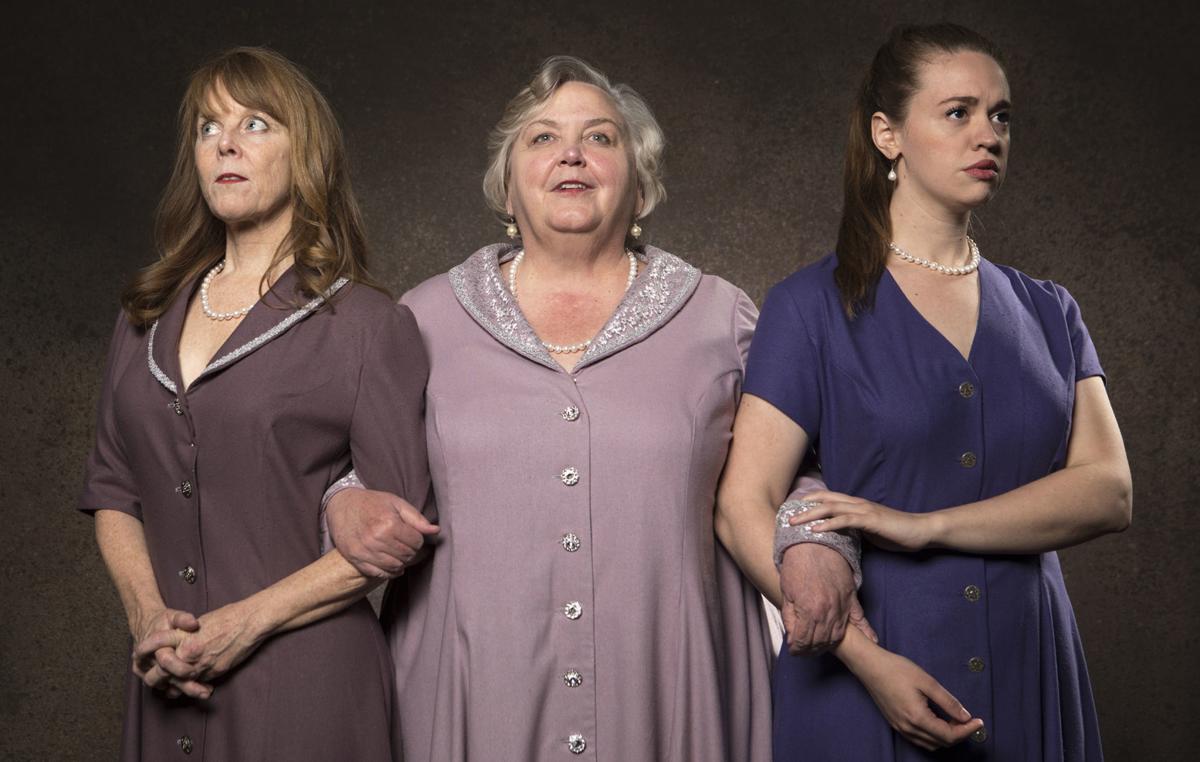“Three Tall Women” reeks of death.
And life.
The Edward Albee play, now in a powerful production at the Rogue Theatre, is an examination of the life of the character called A (Cynthia Meier). She is 92 — or maybe 91, the age she seems to prefer. Death is creeping up on this unkind, bitter old woman, who spends much of the first act pulling up and repeating fuzzy memories. She spills them out to her caretaker, B (Patty Gallagher), and C (Holly Griffith), a representative of A’s lawyer who is there to discuss finances, a topic A will have none of — everyone’s out to cheat her.
In that first act, Meier makes palpable the confusion old age can bring on. We also have a deep sense of her fear, frustration and need to conjure up memories in hopes of reliving happiness, adjusting them to fit her self-concept and, perhaps, rationalizing a life not too well lived.
Gallagher’s B is a woman packed with empathy as she calms A’s fears and tries to dullen C’s sharpness and cruelty toward the older woman, and Griffith as the younger C almost makes us cringe with the character’s sharp tongue and impatience toward A.
The first act closes with A’s massive stroke.
The next opens with the three women back in the bedroom of the older woman; they are in similar dresses. There is a body in a bed and an oxygen tank near by.
Each of the women represents A at a different age — C is the 26-year-old-version of A, B, the 52-year-old version, and A is 92.
Griffith is the 26-year-old A. She’s not happy about how her life will turn out. “I will not become that,” she insists, pointing with anger at the body in the bed. Griffith gives C a calculated innocence and she inhabits the distress and confusion about her life ahead.
Gallagher is the 52-year-old version of the dying woman, and she takes satisfaction in teasing C about her flirtations and the men in her life. At this point, B has left those flirtations behind and has married a man who cheats on her and is not particularly attractive. But he has money. She has a son who left home at the first moment he could and he has not been back to see his mother in more than 20 years. When that son (Ryan Parker Knox) walks in to sit by the dying A in the bed, Gallagher goes into a fury. “He left,” she tells the others. “He packed up his attitudes and he left, and I never want to see him again.” She then turns to the silent son. “Go away,” she screams. It’s a chilling moment and a clear insight into the character’s ugliness and the anger that comes to define her life.
When A comes in, she is lucid and no longer infirmed. Her memories jive with her younger versions and they look at moments together. It’s as though they are trying to figure out what the purpose of it all is, where was the happiness.
Albee’s play, first performed in 1991, seems to get richer with time. The cast delivers on all that richness. This production, directed by Christopher Johnson with a lovely simplicity and a sharp focus, is a riveting one.





